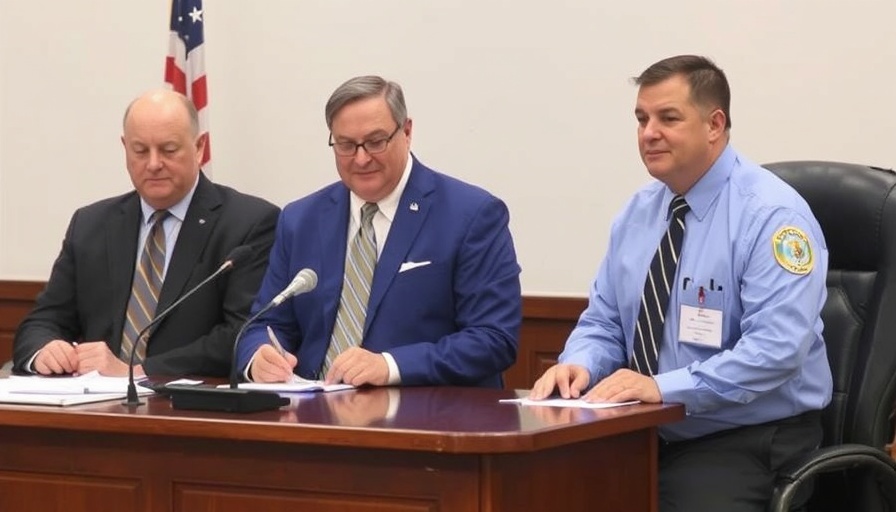
Tax Cuts and County Discontent: A Closer Look
The political landscape in Tarrant County has recently faced turbulence as local commissioners have settled on a new, lower tax rate of $0.1862 per $100 of valuation. This decision, which passed with a 3-1 vote, represents a slight decrease from last year's rate of $0.1875, translating to a savings of roughly $4 for the average homeowner. While this may seem minimal, it comes amidst tensions and conflicting opinions among the commissioners, particularly highlighting class differences in priorities.
Understanding the Political Clashes
The absence of Commissioner Alisa Simmons during pivotal meetings is emblematic of wider struggles surrounding budgetary decisions. Simmons, a Democrat, had framed her absence as a protest against the tax proposal, believing that its execution could jeopardize essential county services. Meanwhile, Commissioner Roderick Miles Jr., also a Democrat, voted against the tax cut, emphasizing the need for funds to bolster county resources.
Impact on County Services
This tax reduction comes at a time when cutbacks on administrative positions and funding for vital public services are also in the spotlight. The moves made by Republican Tarrant County Judge Tim O’Hare to amend the budget have opened up talking points about whether financial prudence or community welfare should take precedence in the face of dwindling resources.
Long-Term Implications for Homeowners
While the tax cut may intellectually appeal to homeowners seeking financial relief, it also raises questions about future county service infrastructure. Philanthropics and social resources often flourish alongside robust public spending, leading to a paradox for residents who may prioritize savings but risk sacrificing essential community resources.
The Future Landscape of Tarrant County
As discussions continue around the impact of lowered tax rates, citizens remain divided. Some may welcome the nominal savings; others worry about the long-term implications on local services. A community divided poses a challenge for cohesive governance and future decision-making, prompting the question: what are the responsibilities of elected officials to their constituents?
Taking Action in Your Community
The core of this issue resonates heavily within the Dallas Fort Worth area, encouraging homeowners to reflect on the direct impact of local governance decisions such as tax rates. Engaging with local meetings and advocating for preferred funding allocations could bear significant influence on upcoming budget decisions. The dialogue between commissioners and constituents could set the tone for the county’s future budgetary landscape.
 Add Row
Add Row  Add
Add 




Write A Comment